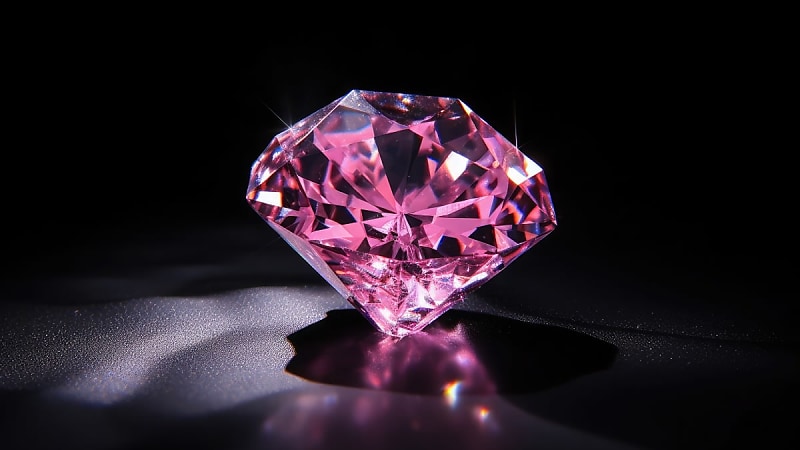GIA vs IGI: Understanding the Differences in Diamond Certification
When purchasing a diamond, whether for an engagement ring or as an investment, it’s essential to understand the factors that determine its quality and value. One of the most significant aspects of this evaluation is the diamond certification. Among the most renowned and trusted certification agencies in the world are the Gemological Institute of America (GIA) and the International Gemological Institute (IGI). Though both institutions provide diamond grading, they differ in several key areas. In this article, we will explore the differences between GIA and IGI certification, helping you make an informed decision when buying a diamond.
Table of Contents
What is Diamond Certification?
Diamond certification refers to a professional evaluation of a diamond’s characteristics, including its cut, color, clarity, and carat weight, also known as the “4 Cs.” A certified diamond has been evaluated by a gemologist in a lab and is issued a report that confirms its authenticity and quality. Diamond certification ensures transparency, allowing consumers to make informed choices when purchasing a gemstone.
The Role of Diamond Grading Agencies
Diamond grading agencies play a crucial role in assessing a diamond’s quality. These organizations follow specific grading standards and use advanced equipment to examine and grade diamonds. Among the most well-known and respected certification bodies are the Gemological Institute of America (GIA) and the International Gemological Institute (IGI).
GIA vs IGI: Overview of the Two Certification Bodies
1. GIA (Gemological Institute of America)
The GIA is one of the most recognized and respected names in the world of gemology. Founded in 1931, the GIA is an independent nonprofit organization that has been at the forefront of gemological research and education. It is known for its rigorous and transparent grading system, GIA vs IGI, particularly in relation to diamonds.
Key Features of GIA Certification:
- Global Reputation: The GIA is widely regarded as the gold standard in diamond certification.
- Strict Grading Standards: GIA follows very strict and consistent grading protocols, ensuring that diamonds are evaluated with precision.
- Objective Grading: GIA grades diamonds with an unbiased and standardized approach, free from any external influence or pressure.
- Transparency: GIA grading reports are detailed and comprehensive, allowing buyers to see exactly how a diamond has been evaluated.
Pros of GIA Certification:
- Highly trusted by jewelers and consumers worldwide.
- Recognized for offering the most accurate and reliable grading reports.
- The GIA grading scale for diamonds is the most widely accepted in the industry.
2. IGI (International Gemological Institute)
The IGI is another well-known diamond certification body, founded in 1975 in Antwerp, Belgium. IGI is also a respected name in the diamond grading industry but is sometimes considered to be more lenient in its grading compared to the GIA. IGI operates in over 20 countries and is known for grading not only diamonds but also other gemstones and jewelry.
Key Features of IGI Certification:
- Global Reach: IGI has a wide global presence, operating in many countries and issuing certificates for diamonds, gemstones, and jewelry.
- Lax Grading Standards: While IGI is reputable, its grading is sometimes perceived as more lenient than that of GIA.
- Cost-Effective: IGI certificates tend to be more affordable compared to GIA reports, making it a more cost-effective choice for some buyers.
- Versatility: IGI certifies not only diamonds but also other precious stones and jewelry, offering a broad range of services.
Pros of IGI Certification:
- Often more affordable compared to GIA certification.
- Can be found on a wide range of diamonds in various price points.
- IGI’s global presence makes it easier to find certified diamonds.
Key Differences Between GIA and IGI
While both GIA and IGI provide valuable diamond certification, there are several notable differences between them:
1. Grading Rigidity
- GIA: Known for its stringent and precise grading standards, GIA is considered the most rigorous in the industry.
- IGI: Grading by IGI is seen as less stringent compared to GIA, which could lead to diamonds being graded more leniently.
2. Global Recognition
- GIA: As the most prestigious grading organization, lab diamonds, GIA is recognized by both the jewelry industry and consumers worldwide.
- IGI: While IGI is well-known, its certification is sometimes perceived as less prestigious than GIA’s in the industry.
3. Grading Reports
- GIA: GIA certificates provide a detailed and precise breakdown of a diamond’s characteristics, including its cut, color, clarity, and carat weight.
- IGI: IGI certificates also provide detailed reports, but the grading system is sometimes considered less transparent than that of the GIA.
4. Cost
- GIA: Due to its reputation and rigorous grading process, GIA certification tends to be more expensive.
- IGI: IGI certification is more affordable, which can make it an attractive option for buyers on a budget.
5. Diamond Valuation
- GIA: Diamonds graded by GIA generally tend to have higher resale value due to the organization’s prestige and reliable grading system.
- IGI: IGI-certified diamonds can sometimes have a lower resale value, as they are not always held in the same high regard as GIA-certified stones.
Which Certification Should You Choose?
The choice between GIA and IGI ultimately depends on your preferences and budget.
- Choose GIA if: You want the most trusted and transparent certification, are looking for the highest resale value, and are willing to invest in a diamond with the most precise grading.
- Choose IGI if: You are on a budget, are looking for a more affordable certification, and are okay with slightly more lenient grading standards.
Conclusion
When it comes to purchasing a diamond, GIA and IGI are two of the most prominent certification organizations. While GIA is known for its strict grading system and global recognition, IGI offers a more affordable option with a broader range of services. Ultimately, both certifications have their merits, but understanding the differences between GIA and IGI can help you make a more informed decision when buying a diamond.




